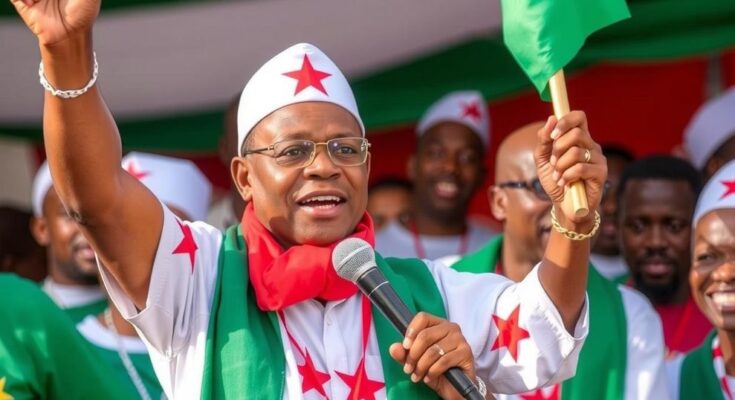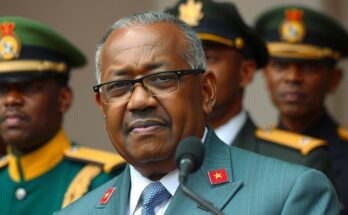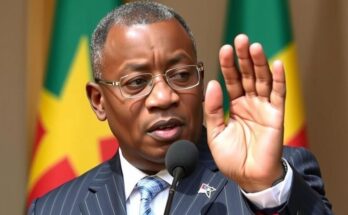Chad’s ruling Patriotic Salvation Movement won 124 seats in December’s parliamentary elections, following a boycott by main opposition parties. The election, the first in over ten years, reported a 51.5% voter turnout. President Mahamat Idriss Déby aims to decentralize governance despite opposition criticism and ongoing security issues in the country.
In December’s parliamentary elections in Chad, the ruling Patriotic Salvation Movement (MPS), led by President Mahamat Idriss Déby, achieved a notable victory by securing 124 out of 188 available seats. This election marked the first of its kind in over a decade, yet it occurred amid a widespread boycott by more than ten opposition parties, who criticized the electoral process as a mere facade. The provisional voter turnout was reported at 51.5%, reflecting the significant tensions surrounding the elections. Despite these dynamics, President Déby positioned the election as a crucial step towards decentralization in governance, aimed at empowering local governments, following his ascension to power as a military leader after the death of his father, Idriss Déby Itno, in 2021.
Chad has faced considerable political challenges, transitioning from a long-standing military leadership under Idriss Déby Itno to his son Mahamat Idriss Déby, who assumed control following his father’s death. The December elections were intended as a landmark event in the country’s return to democratic governance after a decade. However, the boycott by major opposition groups, including the Transformers party, highlighted widespread skepticism about the electoral integrity and fairness, following allegations of past disputed elections. Additionally, Chad is currently grappling with substantial security threats, particularly from militant groups like Boko Haram, which have further complicated its political landscape and democratic aspirations.
The December parliamentary elections in Chad have reinforced the ruling party’s control amid significant opposition boycotts and skepticism regarding the electoral process. With the MPS securing a sweeping victory, President Mahamat Idriss Déby is positioned to enhance his power and push for a decentralization agenda, even as concerns about democratic legitimacy linger. The political climate remains tense, with continuing security challenges from militant threats impacting the nation. As the situation evolves, the international community will likely keep a close watch on Chad’s political stability and the prospects for meaningful democratic reforms in the region.
Original Source: www.rfi.fr




